Oscar Wilde defined a cynic as one who knows the price of everything and the value of nothing. If this is so, many of us are more cynical than we realize because we don’t know the difference between price and value. We buy the cheapest because this is our duty as good consumers. We need to be looking for the best price or the best deal. We need to be on the quest for a bargain. It’s all about the price.
And yet this does not pay due attention to those things of real value which are priceless. Is it possible to put a price on freedom, or human life, or health, or goodness, truth and beauty?
What if buying the cheapest product compromises freedom? What if the best price leads to the worst consequences? What if the best deal leads to a raw deal for others? What if the quest for the bargain gives us more than we bargained for? What if paying the lowest price comes at the highest cost in terms of life and liberty?
Once we begin asking these questions, it changes the way that we view the spending of money. We come to realize that we carry the power in our pockets to change the world for better or worse. Every dollar we spend is a vote that we cast.
For whom or what do we vote when we put our hands in our pocket and take out our cash or our debit and credit cards? Are we making the world a better or worse place? Are we part of the problem or part of the solution to the problem? Are we preserving freedom or selling ourselves and others into slavery? Are we protecting life or are we supporting the culture of death?
Such questions and the need to answer them correctly means that spending money is a moral act. If we spend recklessly, we are living recklessly. If we spend heedlessly and headlessly, we are living heedlessly and headlessly. If the spending of our money has immoral consequences, we are living immorally.
These questions should be on our minds whenever we reach into our pockets but should be especially on our mind at this time of year when most of us are spending more than usual. Christmas shopping in the true spirit of the Christmas season must involve the practice of virtue with every dollar we spend.
Whenever possible, we should try to combat the rise of globalism by spending locally and in locally owned stores. We should shop at the local farmers’ market. We should eat in locally owned restaurants and avoid eating in the chains. We should avoid voting with our dollars for abortion or Pride by avoiding those places that support these manifestations of the culture of death. We should vote against the unholy alliance of globalism and communism by boycotting goods made in China. Look at the labels when buying clothes. If it’s made in China, don’t buy it. If all the clothes in the store are made in China, go to another store. It might be impossible to find affordable clothes made in the United States but it’s better to buy goods imported from India, Indonesia, Cambodia or from countries in South America than to buy them from China.
If buying online, try to avoid buying from Amazon. There are other online options available.
Considering the bad habits that all of us have adopted, there is little doubt that changing our spending habits will necessitate inconvenience, even suffering. If this is so, we should remind ourselves of Chesterton’s words of wisdom that an inconvenience is simply an adventure wrongly considered or, to put the matter the other way round, an adventure is an inconvenience rightly considered. Learning to vote on a daily basis for a better world should be seen as a great adventure, a quest for justice and truth which is worth the necessary sacrifice of ourselves for others.
The only alternative is surrendering to the powers of globalism and the culture of death. It is, in truth, worse than surrendering because a refusal to shop morally makes us part of the very problem that we are seeking to solve. It doesn’t make us defeated combatants who lay down our arms, it makes us enemy agents who are helping to facilitate the destruction of the very freedoms that we claim to cherish.
We are not free to do what we want in the marketplace. In the marketplace, as in any other place, the path of least resistance leads to hell. In the marketplace, as in any other place, all that’s necessary for the triumph of evil is for good men to do nothing. No, we are not free to do what we want in the marketplace but we are free to do what we should. If we exercise that freedom today and every day, we will be making the world a better place for our children. May our Christmas shopping give us all a happier new year!
—
This article appeared first on The Imaginative Conservative and is reprinted here with permission.
Image credit: Pexels
1 comment

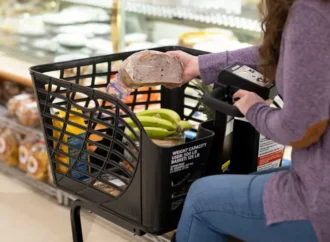
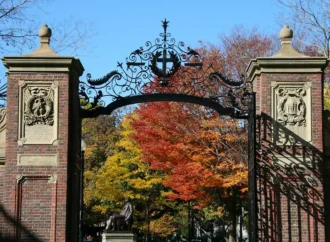


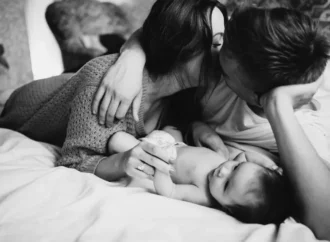

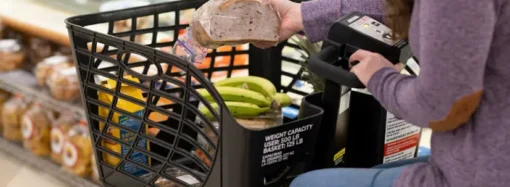
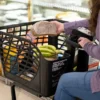






1 Comment
Eric Collins
October 15, 2025, 4:11 amNavigating auctions and marketplaces can be a real gamble, especially when you're dealing with high-stakes investments or rare finds. I once got caught up in the excitement of bidding on a property through one source, only to face unexpected fees and unclear terms. It wasn't until I stumbled upon <a href=https://auction-com.pissedconsumer.com/review.html>Auction Com reviews</a>
REPLYthat I realized I wasn't alone in my frustrations. Reading about others' experiences helped me understand the common pitfalls and gave me the confidence to approach future auctions with more caution.